A horizontal vibration motor is a type of electric motor specifically designed to produce horizontal vibrations. These motors are commonly used in various industrial applications, especially in vibrating screens, conveyors, and other equipment that require controlled vibration for efficient material handling, screening, or sorting processes.
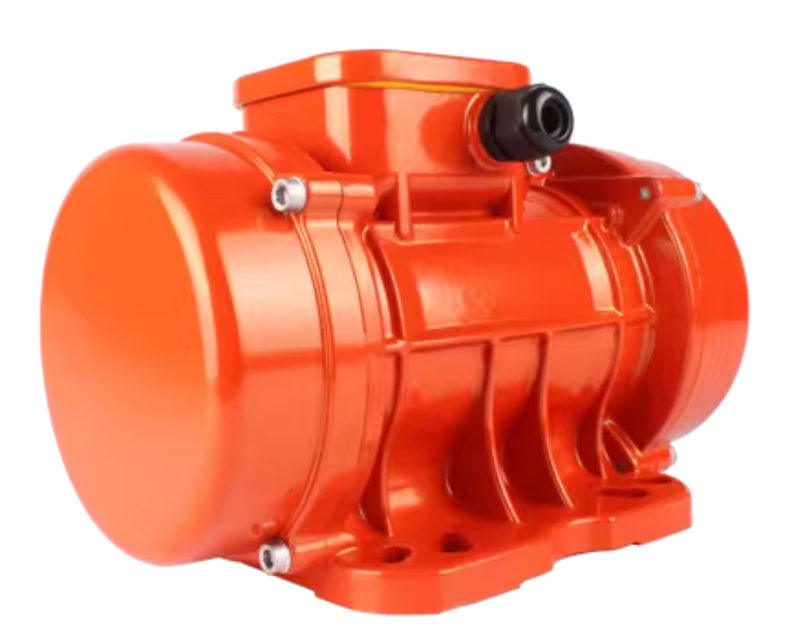
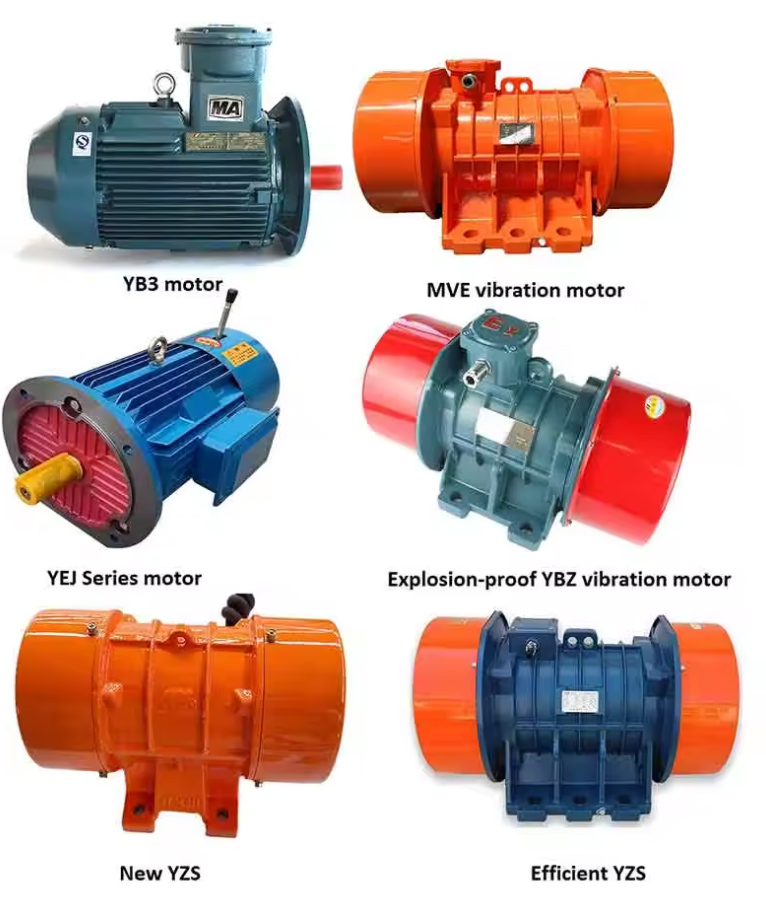
Stator:The stator is the stationary part of the motor that houses the coils through which electric current flows. The stator generates a rotating magnetic field when energized.
Rotor: The rotor is the rotating part of the motor that is mounted on an eccentric weight. As the rotor rotates, the eccentric weight creates an unbalanced force, leading to horizontal vibrations.
Eccentric Weight: The eccentric weight is attached to the rotor and is offset from the center of rotation. This imbalance in weight causes the motor to vibrate horizontally when in operation.
Bearings: Bearings are used to support the rotor and allow it to rotate smoothly within the motor housing.
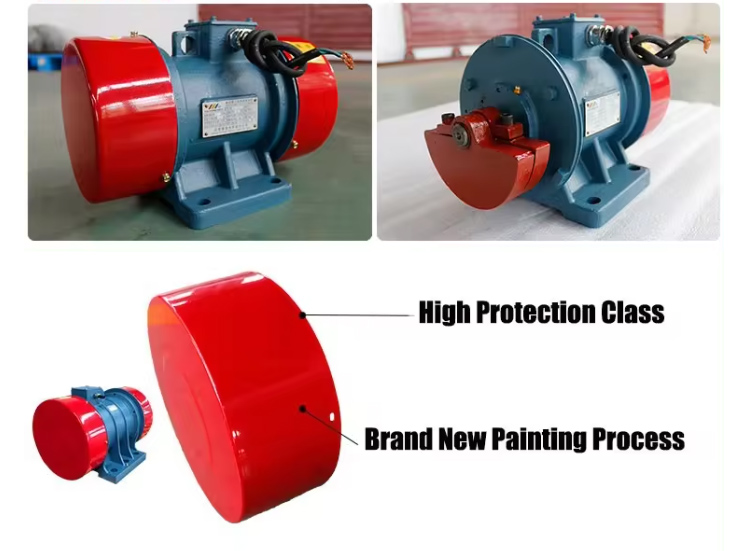
When electric current is applied to the stator coils, a rotating magnetic field is generated. This magnetic field interacts with the rotor, causing it to rotate. The eccentric weight attached to the rotor creates an unbalanced force, resulting in horizontal vibrations.
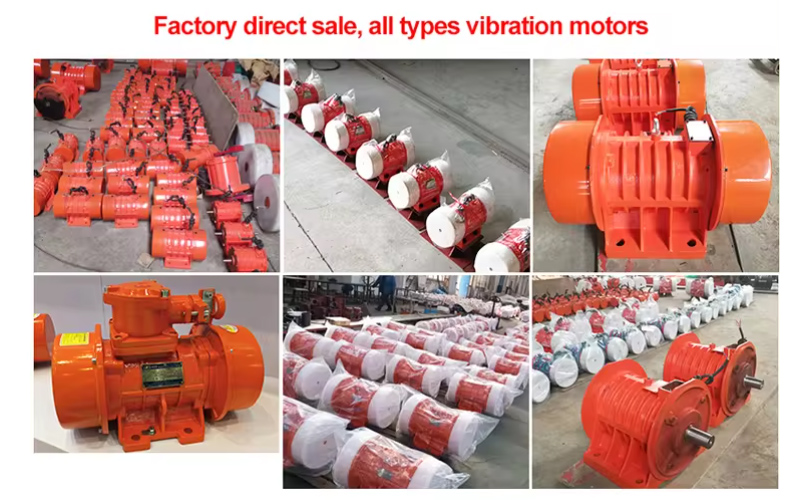
Vibrating Screens: Horizontal vibration motors are commonly used in vibrating screens to efficiently separate and classify materials based on size.
Conveyors: These motors are used in vibrating conveyors to transport bulk materials efficiently by imparting controlled vibrations to the conveying surface.
Feeders: Horizontal vibration motors are used in vibrating feeders to regulate the flow of material by generating controlled vibrations.
Compactors: In applications such as soil compaction and concrete compaction, horizontal vibration motors are used to provide the necessary vibration energy for compaction processes.
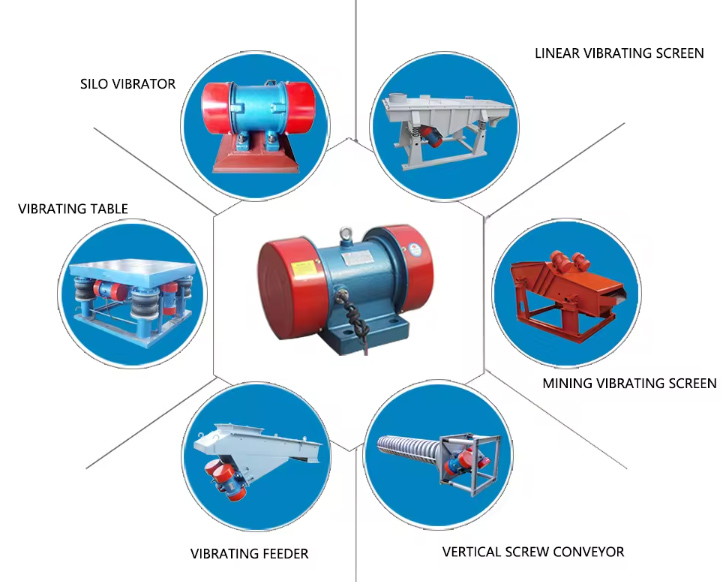
Efficient Material Handling: Horizontal vibration motors help in efficient material handling by providing controlled vibrations for screening, conveying, and feeding processes.
Customizable Vibration: The vibration intensity and frequency of horizontal vibration motors can be adjusted to suit specific application requirements.
Reliability: These motors are designed for continuous operation and are known for their reliability in industrial environments.
Compact Design: Horizontal vibration motors are typically compact in size, making them easy to integrate into various equipment and machinery.
In conclusion, horizontal vibration motors play a crucial role in industrial applications that require controlled horizontal vibrations for material handling, screening, and conveying processes. With their efficient design and customizable vibration characteristics, these motors contribute to the smooth and effective operation of equipment in a wide range of industries.
Address:China,Yanjin county forest park gate to the west 1000 meters north road.